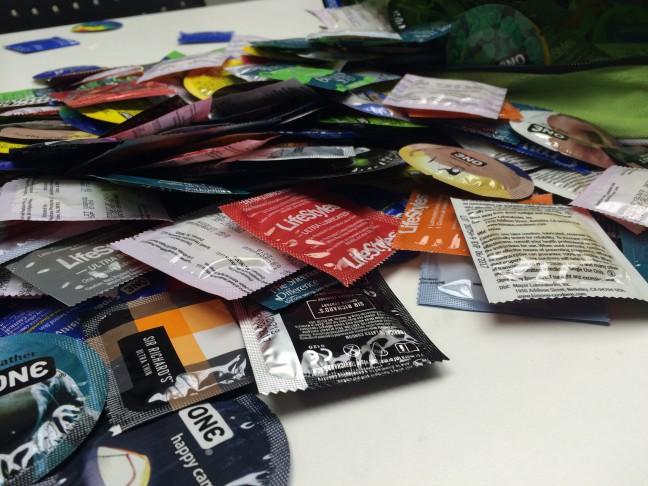As temperatures drop and the holidays near, cuffing season is finally upon us. It’s a time envisioned as cuddle sessions by the fire and passionate endeavors tucked in from the cold. Yet for some, the onset of cuffing season signals something far different: seasonal affective disorder (SAD), also known as seasonal depression.
Seasonal affective disorder is a subset of depression that’s related to the changes in the seasons, most commonly linked to the winter months.
As the disorder is like any other depression, it affects every aspect of one’s life. Seasonal depression hinders motivation, interest and desire, infiltrating interpersonal relationships. For most people, sex is a vital component of their lifestyle as well as a significant part of their romantic relationships. Apparent drops in libido, loss of physical signs of arousal, and even the inability to orgasm are all factors of sex while living with depression.
While medication can be very helpful in combatting these symptoms for some, certain antidepressants unfortunately have side effects including changes in libido and the inability to orgasm. Unfortunately, both the condition and the treatment may cause these changes to your sexual functioning.
It can be difficult to manage these symptoms, but thankfully, you can get through them. Here are a few options for maintaining a healthy sex life while still combatting depression.
Talk to your partner
Depression is a hidden illness. Although there is no one-size-fits-all remedy for the situation, communication is always effective. Informing your partner(s) of what you are going through and the side effects of your depression is a vital step.
As depression harms the affected and those surrounding the affected, it’s important for you and your partner(s) to be on the same page and combat the issue together. Informing your partner about your symptoms can also help take the pressure off of yourself to perform, and help you feel less alone in your symptoms. Your partner(s) should make you feel reassured and comforted.
If your partner, however, tries to coerce you to have sex when you are unable to or are just not in the mood to, remember you are never required to engage in any sexual activity. Do not feel pressured to have sex simply because your partner is in the mood because the experience is for you as well. Sex should be an experience that makes you and your partner(s) feel good, and should not be forced or coerced. There is no “correct” frequency for how often you and your partner should have sex — so do not feel pressured to engage in sexual activity simply because you feel guilty for saying no repeatedly.
Therapy and Medication
As always, communication is key especially for those affected by SAD. If there are issues in your sex life that stem from depression, talk about them with your doctor or therapist. Your therapist can offer coping mechanisms for your SAD and aid in the mental blocks you may have with sexual activity.
If you currently take medication for SAD, you can speak to your doctor about the possible side effects. For many, finding the right antidepressant for you can be challenging, and may take a few tries to find the medication that works for you. Changing your medication or even switching to a lower dose can help with SAD without the sexual side effects.
If you believe your difficulty with sexual functioning is a big enough reason to discontinue or change your antidepressant, that is your decision to make. Discussing this with a medical professional can help you see other options.
Use Campus Resources for Help
UW-Madison has a number of resources available for students in regards to mental health services. At no cost to you, University Health Services offer individual and couple/partner therapy, group counseling and stress management. Along with a crisis hotline that runs 24/7, UHS provides students with an array of options to fully support their mental well-being. To get started, you can schedule an Access Consultation by calling the MHS reception desk (608.265.5600, option 2) or logging into MyUHS to book an appointment. During this appointment, a counselor will discuss the best resources for you based off the consultation.
Hump Day: Your questions on long distance, sexual exploration answered
Touch!
If sexual activity seems far too daunting, focus on the basics of intimacy: touch. Whether it be hugging, cuddling or even holding hands, the simple act of touch can make you feel closer to your partner(s).
Starting off slow with touch can also gradually enhance your libido and increase your desire. Be patient: good things can come with just a little more time and care. By playing around with other forms of intimacy, you can foster and maintain a connection with your partner(s) until you feel ready.
Just do it!
When you feel ready, engage in whatever sexual activity you and your partner(s) decide on. Engaging in self pleasure is also key as you combat SAD. Some antidepressants make physicality difficult such as erectile dysfunction, vaginal dryness, or inability to achieve an orgasm. In that case, lube up and focus on foreplay. Remember that sex isn’t about reaching orgasm. The only goal is pleasure.
Be gentle with yourself
Living with mental illness is difficult. The feelings of fatigue, isolation and hopelessness can be overwhelming, outweighing everything else in your life. It’s easy to fall into a negative thought pattern, but try to remember that you are doing your best. This is a time to be gentle with yourself. Engage in acts of self-love. And remember that enduring a mental illness does not mean you must strip yourself of your sexuality.














